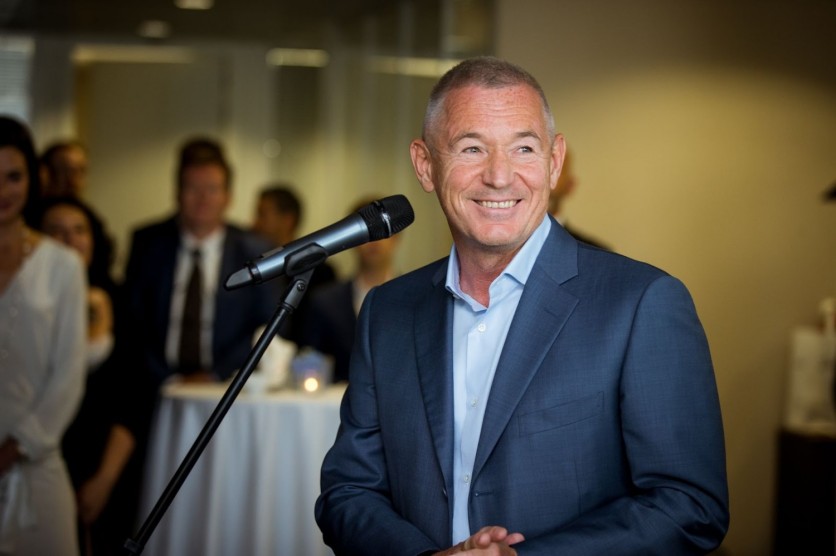
Igor Makarov, a business leader synonymous with business excellence, has carved a niche in the global corporate arena. With a track record of spearheading successful ventures and driving innovation, Makarov's journey is a testament to his visionary leadership and commitment to excellence.
As businesses evolve, technological advancements and market dynamics constantly redefine success parameters. In this narrative, Makarov's emphasis on people-centric leadership stands out. He firmly believes that while strategies and technologies are pivotal, people breathe life into an organization. In today's competitive world, where companies vie for a larger market share, Makarov's approach underscores the significance of placing people at the heart of business operations, highlighting that the company's most valuable asset is its human capital.
Makarov is a Turkmenistan-born, now Cyrpus national entrepreneur and philanthropist who founded and led various business ventures, including ARETI International Group, an investments company focused on multiple sectors, such as the energy sector, as well as charity and sports, worldwide.
In his years of entrepreneurial experience, Makarov takes pride in his primary professional value of investing in people, recognizing its benefits to foster business success and positive change in the community.
The Shift in Business Dynamics
The business landscape of 2023 has seen a seismic shift from the traditional profit-driven models to ones that prioritize human capital. "Businesses that fail to recognize the value of their people are setting themselves up for failure," Makarov opined. This statement was echoed by recent data from IBM, which reveals that companies that adopt a people-centric approach experience a 32% increase in revenue and were reported to deliver 2x faster market outcomes.
These numbers reveal that prioritizing people is not just an option but a must for success. Makarov mentions, "When you invest in your people, you're not just investing in individuals. You're investing in the future of your company."
However, this shift hasn't been without its challenges. Some traditionalists argue that businesses exist to make profits, which should always be the primary focus. They contend that an excessive emphasis on people-centric approaches could divert attention from the bottom line, potentially jeopardizing a company's financial health.
In response, Makarov offers a nuanced perspective. He acknowledges the foundational importance of profitability for any business but posits that long-term and sustainable profit is intrinsically linked to the well-being and motivation of its workforce.
To him, a people-first approach isn't about sidelining profits; it's about recognizing that motivated, valued, and engaged employees are more productive, innovative, and loyal. This, in turn, leads to better products, services, and customer experiences, which naturally drive profitability and growth.
The Human Touch in a Digital Age
Despite the rapid advancements in technology, the human touch remains paramount. Drawing from Makarov's vast experience, he shares that businesses thrive by fostering a culture of inclusivity and open communication. "In an age where most of our interactions are digital, genuine human connection becomes a differentiator," he remarked.
Supporting this, 2023 forecasts predict a continued rise in the demand for roles that require human empathy, creativity, and strategic thinking. Makarov believes that though machines can process, they can't empathize. They can analyze data but can't create visionary strategies like people do.
Yet, the digital age allows businesses to leverage technology to enhance employee experience. Companies are finding innovative ways to support and nurture their teams, from flexible remote working tools to AI-driven personalized learning platforms.
Benefits, Challenges, and the Road Ahead
Makarov shed light on the multifaceted advantages of employing a people-centric business approach. He emphasized that companies adopting a people-first mindset witness enhanced employee satisfaction and retention, leading to a more stable and motivated workforce. This approach also fuels a significant surge in creativity and innovation, as employees feel valued and empowered to think outside the box. Furthermore, it fosters a robust company culture deeply rooted in shared values and mutual respect, which translates to improved customer satisfaction and loyalty.
Makarov mentions, "Give your team the freedom to dream, and they'll give you solutions you never imagined."
While the journey towards a fully people-centric model presents challenges, as Makarov highlights, the rewards are well worth the effort. "Change is never easy, and it's often met with resistance. But the key is to stay the course, keeping the bigger picture in mind," Makarov points.
Fostering People-First Approach as a Standard
Looking ahead, Makarov is optimistic about the future of the people-centric approach. The Cyprus businessman advices aspiring leaders keen on transitioning from a traditional leadership approach. "Start by listening. Understand the aspirations, challenges, and needs of your team. Then, create an environment where they feel empowered to contribute their best."
The entrepreneur and philanthropist sees a world where companies, regardless of size or industry, recognize their true strength in their workforce. "The businesses of tomorrow won't be defined by their balance sheets but by their teams' smiles, satisfaction, and growth. Based on my experience, when you nurture your human capital, you're not just building a business, you're building a legacy," Makarov added.
ⓒ 2026 TECHTIMES.com All rights reserved. Do not reproduce without permission.




